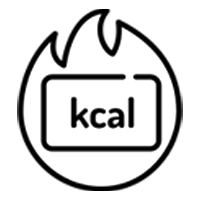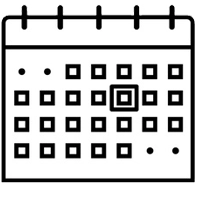Show summary Hide summary
- Scuba diving for weight loss: How often should we go scuba diving to lose weight?
- Scuba diving: How many times per week and for how long should we scuba dive to lose weight?
- Scuba diving: Which plan should you follow and how often should you do it to lose weight?
- In addition to practicing scuba diving, it is important to pay attention to your diet!
- Which sports can help you lose weight?
Scuba diving for weight loss: How often should we go scuba diving to lose weight?

Everything you need to know about scuba diving
How often should you go scuba diving to lose weight fast and see results? Does scuba diving help you lose weight? How many times per week and for how long should you scuba dive to lose weight and burn fat? The tool below enables you to track the effects of scuba diving over a month. Simply select the duration of your scuba diving session—either 30 minutes or 1 hour—and choose a frequency of 1, 2, 3, or 4 times per week to shed those extra kilos!
Explore more REGIVIA tools:
Scuba diving: How many times per week and for how long should we scuba dive to lose weight?

Find out more about scuba diving for weight loss!
Regular exercise combined with a healthy diet can help you slim and tone your body, but some disciplines are more effective than others at helping you lose weight. What about diving and its calorie burn? How much time and how many sessions per week should you spend diving to lose weight and achieve results? Here are some answers.
Calories burned by scuba diving!
As well as helping to strengthen muscles, scuba diving is a cardio sport that helps to burn fat. In addition to the physical effort involved in descending and moving around in the water (flapping your fins, etc.), your body, which is generally immersed in cold water, has to maintain a constant temperature of 37°C, which increases the number of calories burned. On average, you can burn up to 500 calories per hour of diving.
What is the metabolic equivalence of scuba diving?
The metabolic equivalent of a physical activity is a statistical unit(MET Metabolic Equivalent of Task) that expresses the ratio between the energy expenditure of a physical activity during exercise and the energy expenditure of an individual at rest. Scuba diving, for example, has a MET value of 7, and is a medium-intensity physical activity such as water skiing or table tennis. It therefore burns 7 times more calories than at rest.
Scuba diving: Which plan should you follow and how often should you do it to lose weight?
Estimates, calculations and weight loss results from several examples of diving training plans!
Do you know how much weight you lose by diving for 30 minutes, 1 hour or 2 hours? How often should you train to lose weight and burn fat? The tables below will give you an idea of your weight loss as a function of weight, duration and number of training sessions per week.
Performance, effects and impact “before/after”: List of diving programmes over 1 month at normal intensity!
Scuba diving
Normal intensity
Weight loss results for 1 session per week
| Weight | 30 minutes | 1 hour | 2 hours |
|---|---|---|---|
| 40 kg | 0.07 | 0.13 | 0.26 |
| 50 kg | 0.08 | 0.16 | 0.33 |
| 60 kg | 0.10 | 0.20 | 0.39 |
| 70 kg | 0.11 | 0.23 | 0.46 |
| 80 kg | 0.13 | 0.26 | 0.52 |
| 90 kg | 0.15 | 0.29 | 0.59 |
Scuba diving
Normal intensity
Weight loss results for 2 sessions per week
| Weight | 30 minutes | 1 hour | 2 hours |
|---|---|---|---|
| 40 kg | 0.13 | 0.26 | 0.52 |
| 50 kg | 0.16 | 0.33 | 0.65 |
| 60 kg | 0.20 | 0.39 | 0.78 |
| 70 kg | 0.23 | 0.46 | 0.91 |
| 80 kg | 0.26 | 0.52 | 1.05 |
| 90 kg | 0.29 | 0.59 | 1.18 |
Scuba diving
Normal intensity
Weight loss results for 3 sessions per week
| Weight | 30 minutes | 1 hour | 2 hours |
|---|---|---|---|
| 40 kg | 0.20 | 0.39 | 0.78 |
| 50 kg | 0.25 | 0.49 | 0.98 |
| 60 kg | 0.29 | 0.59 | 1.18 |
| 70 kg | 0.34 | 0.69 | 1.37 |
| 80 kg | 0.39 | 0.78 | 1.57 |
| 90 kg | 0.44 | 0.88 | 1.76 |
In addition to practicing scuba diving, it is important to pay attention to your diet!
To maximize the benefits of scuba diving, it is crucial to adopt a balanced diet. A diet rich in macronutrients, micronutrients, and various other essential nutrients helps maintain an optimal energy balance. The energy balance, which is the difference between calories consumed and calories expended, plays a key role in weight management. If you are wondering “why did I gain weight“, it may be that your energy balance is off. By combining scuba diving with proper nutrition, you can achieve your health and wellness goals more effectively.
Everything you need to know about scuba diving
Which sports can help you lose weight?
All sports in detail!



















































